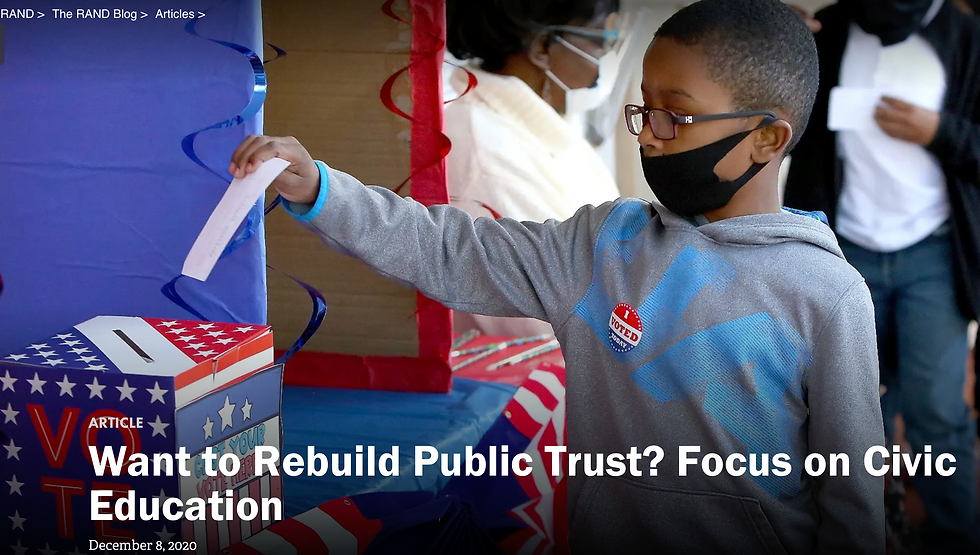Restoring The Bedrock of Reality: The Urgency of Combatting "Truth decay"
- Chase Glazier

- Sep 21, 2023
- 2 min read
In a world where one can customize virtually every aspect of their digital experience, there’s a growing, shadowy specter in America’s peripheral vision: the distorting of basic facts, a phenomenon often referred to as "Truth Decay." This alarming trend threatens not just our public discourse but the very fabric of our democracy.
Over the past eight years, the chasm between facts and beliefs has widened at a startling rate. Falsehoods, once easily discernible and relegated to the fringe, have become embedded in the mainstream. But hope is not lost. The antidote to this malaise lies in the very bedrock of societal advancement: education.
I believe the American classrooms are where the nation's future is forged. Through education, we can instill the values of discernment, critical thinking, and respect for truth. We must revitalize our curriculum to emphasize media literacy, source evaluation, and the ability to differentiate between opinion and fact.
Think about this: in a past, when the news was limited to a handful of TV stations and newspapers, the scope for widely spread misinformation was narrow. Fast forward to today, and the digital age offers infinite channels for both information and misinformation. The very tools that empower us to connect and learn also leave us vulnerable to manipulation.
To combat Truth Decay, we must first acknowledge that words matter. Every falsehood perpetuated has real-world consequences. Lies, if left unchecked, can sway elections, shape policies, and impact lives. The divisive nature of misinformation also hinders constructive dialogue, crippling our ability to address pressing issues, from climate change to public health.
Education, in this fight, becomes our most potent weapon. Schools must move beyond traditional rote learning and venture into the realm of cognitive adaptability. By introducing lessons that challenge students to question sources, identify biases, and analyze the veracity of claims, we not only arm them against falsehoods but also foster an environment of intellectual curiosity.
The role of educators in this process is vital. Their influence extends beyond the four walls of a classroom. They must be equipped with the tools and training to guide students through the complex maze of the digital age. Investing in ongoing professional development for educators, focusing on media literacy and critical thinking, will lay a strong foundation.
However, the responsibility doesn’t rest solely with educators. The media, tech companies, and policymakers must also step up. Social media platforms, where misinformation can spread like wildfire, should take proactive steps to curb the spread of falsehoods while promoting transparency. Policymakers, on their part, can prioritize and fund educational initiatives that center on fact-checking and discernment skills.
In the end, the solution lies in a collective effort. Restoring trust, a pillar of any thriving democracy, requires the concerted efforts of all stakeholders. America stands at a crucial juncture, one where it can either let Truth Decay chip away at its core or rally its resources to uphold the sanctity of facts.
Our history is replete with instances where we have risen to challenges, innovated, and emerged stronger. The battle against Truth Decay is no different. Let's leverage our shared commitment to the truth, our innovative spirit, and the power of education to rebuild trust and chart a way forward for a brighter, fact-driven future.






Comments